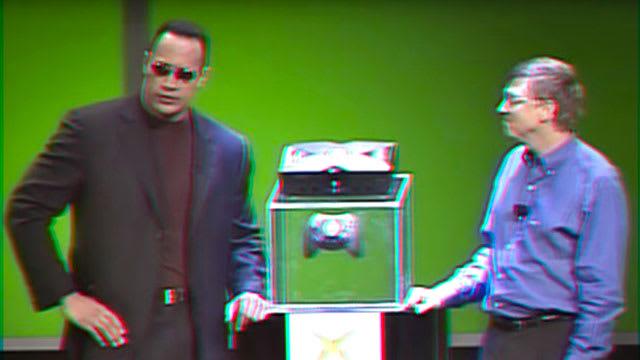SeamusBlackley
Latest

The story of the Duke, the Xbox pad that existed because it had to
Denise Chaudhari had never touched a gamepad before stepping onto Microsoft's campus as a contractor. The first woman to join the Xbox team, Chaudhari had studied ergonomics and industrial design at the prestigious Rhode Island School of Design but didn't have any experience with joysticks. That's part of why Xbox's Jim Stewart was so excited to bring her on board: Her ideas wouldn't be based on preconceived notions of what a gamepad had to be. It was early 2000, and the company was preparing to enter the gaming world with the Xbox. In Nov. 2001, the console was released in North America alongside the Duke, a controller that seemed comically large compared to its contemporaries. Within a year, the oversize gamepad was abandoned by Microsoft and replaced with a smaller model, but the Duke has had an impact on every controller since.

Microsoft's Xbox was the last great CES reveal
CES was a different show 17 years ago. In 2001, the Best of Show award went to the DataPlay disc, a postage-stamp-size memory card that held up to 500MB of data. If you can't remember it, don't worry -- the company went out of business shortly thereafter as SD became the de facto standard. Microsoft was still the biggest tech company on the planet at that point -- Apple wouldn't release the original iPod for another nine months -- and each CES began with a keynote hosted by Bill Gates. The first 80 minutes of its 2001 keynote consisted of clunky tech that now, in some form or another, lives in Google Home or your smartphone. But then came the reveal of the original Xbox. It arrived with none of the fanfare we expect from modern tech presentations, but, unlike the Pocket PC voice-to-text demo that preceded it, the Xbox debut changed the company's future. For once, Microsoft was an underdog, going head-to-head against Sony, Nintendo and Sega for control of the living room. To help sell its vision, the company enlisted a veteran game developer with a penchant for flashy footwear and, of course, a pro wrestler. This is the story of that presentation, from the people who were there.

Original Xbox could have been named MARZ, VERV, other awkward acronyms
Xbox is a household name today, but a recently unearthed EDGE interview with Seamus Blackley has revealed that this name almost didn't make the early cut. Microsoft asked Blackley's team for a name change due to legal reasons, and it suggested a wave of cringe-worthy acronyms that included MARZ (Microsoft Active Reality Zone) and VERV (Virtual Entertainment & Reality Venture). We all know who won the debate, but it's entertaining to think of what might have been. Check the full list of rejected names at the source link -- and be glad that you're not lining up to buy the latest Halo game for your Microsoft Entertainment & Gaming Attendant. [Image credit: Evan-Amos, Wikipedia]

Xbox co-creator brings together Atari 'dream team' for mobile gaming startup
A new mobile gaming startup that's yet to release a single game isn't the sort of thing we'd normally cover 'round here, but the story behind Los Angeles-based Innovative Leisure is anything but ordinary. The man behind the company is the co-creator of the Xbox, Seamus Blackley, and he's brought with him eleven industry veterans that he calls "the dream team from Atari," including the likes of Van Burnham, Ed Logg, Rich Adam, Tim Skelly, Owen Rubin, and Ed Rotberg. While those names may not be familiar to everyone, you'll surely recognize some of the games they were responsible for: Asteroids, Centipede, Gauntlet, Missile Command, Battlezone, S.T.U.N. Runner, Major Havoc and Space Duel, to name a few.Speaking with VentureBeat, Blackley describes mobile devices as "the new arcade" and 99 cent games as the "new quarter," adding that he's aiming to carry on where Atari left off, "focusing on innovation in gameplay." To help with that, the company has secured backing from THQ, which has reportedly agreed to an initial slate of ten games, seven of which are now in development (with only the iPhone and iPad mentioned as supported platforms so far). Unfortunately, details remain light beyond that, with Blackley only offering late summer or fall as an estimated release date for the first titles. In the meantime, you can find more of the backstory at the links below (THQ's press release can also be found after the break).


